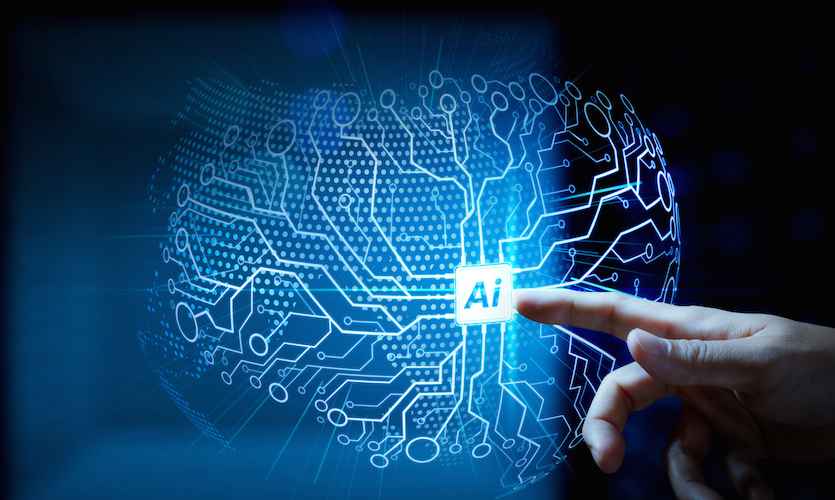My first exposure to artificial intelligence was science fiction movies like Terminator and 2001: A Space Odessey. In most movies of similar genres, A.I. was the bad guy, or rather the bad computer hive mind. A.I. set off nukes and caused an apocalyptic event. It also made cyborg human killers, hunted down survivors, turned on space explorers, and even enslaved all of humankind in a realistic computer simulation. But in the real world, Artificial Intelligence is much tamer and quite useful.
Artificial Intelligence and A.I. Business Use Cases
We hear phrases like A.I. is the most significant discovery of the millennium and other similar-sounding lavish praises. We hear them so much that it becomes a cliché and we become insulated to just how exciting artificial intelligence is. It is all around us, we use it every day in some form or another. When I Google a cable TV service in my area, the results that show up are artificial intelligence in action. But what exactly is artificial intelligence?
Without getting into dense programming lingo and jargon-heavy explanations, here’s a brief look at what A.I. really is. Artificial intelligence is the engineering and science of making intelligent computer programs and machines. Many A.I. “learn” by observing human behavior, but that’s not the only way an A.I. program can display intelligence. The intelligence of a machine, or even a person, is the computational part of their ability to achieve specific goals. The intelligence of a machine or a person can differ from machine to machine and person to person.
But even without getting into technical or philosophical details, the opportunities that the power of artificial intelligence offers us are immense. Technology giants like Google, Facebook, and Apple are making extensive use of A.I. in their services as well as their smart products. While initially using A.I. in business settings was restricted to enterprises with enough resources to afford it, these days even smaller organizations have access to it. Here are just a few ways A.I. is in use in businesses preparing themselves for inevitable transformation:
- Pharmaceutical Industry
- Insurance Industry
- Retail Industry
Let’s take a closer look at these use cases below.
1. Pharmaceutical Industry
One of the most important areas in that we see artificial intelligence transforming is the pharmaceutical industry. We are seeing an increase in interconnected ecosystems within the industry. Machine learning and data analytics support these systems, fundamentally changing areas like pharmacovigilance. Additionally, we are now able to benefit from artificial intelligence in pharma manufacturing through disease detection, forecasting, and research among others. While the convention has been to track and react to adverse pharmaceutical drug-related events, A.I. offers a different route. In contrast, next-gen pharma companies are using data analytics coupled with artificial intelligence to identify and predict drug problems and abuse patterns. This helps them proactively work on protecting and improving patient health.
2. Insurance Industry
The insurance industry is another sector that is seeing fundamental changes in many aspects thanks to artificial intelligence. Smart homes are a trend that is gaining popularity all over the globe. Of course, most people are interested in the novelty of being able to control lights and heating all over their homes using a single dashboard on their smartphones. But there’s much more to an A.I. powered smart home than learning your habits and switching lights on and off automatically.
Imagine if you’re at work, and a pipe in your basement back home springs a leak. The A.I. can not only detect the leak and shut off the water valve to prevent flooding. It can actually use sensors to assess the damage and automatically file a claim with your insurance provider. All before you even get home.
On the other end, insurance companies are using specialized A.I. that communicates with the one in your smart home. Using analytics and machine learning, this A.I. can automatically manage incoming claims, investigate the extent and nature of the damage, and start the reimbursement process. With machines handling everything, there is a reduced risk of insurance fraud or wrongfully denied claims. This can help insurance companies evolve from policy sellers to a trusted protector.
3. Retail Industry
One of the areas where A.I. is making great strides in e-retail. Giants like Amazon have invested in sophisticated A.I. that can learn from accumulated buyers’ data. It uses this to predict buying patterns under varying conditions. The A.I. can predict when there may be a sudden spike in the demand for specific products in specific areas. Retail companies use this to proactively shift those products into nearby houses to reduce both delivery time and holding costs. At the same time, the A.I. keeps acquiring consumer intelligence and helps build customer loyalty using the data it gathers.
A.I. applies to the search engine industry too. Monitoring browser behavior, let’s say if I search for cox cable deals, it learns to show more relevant advertisements and services I might be interested in. This, in turn, influences my buying behavior, all of it giving more data to the A.I. that continues to get smarter.
You must be logged in to post a comment.













This is a really helpful post, very informative there is no doubt about it. Thanks for sharing this information with us. I really appreciate your work.